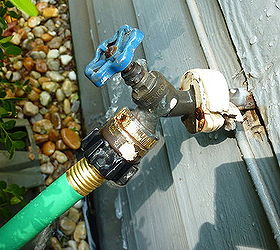Table of Content
Exercise is an extremely potent safeguard and a solution to fluid retention because exercise bolsters your body’s cardiovascular system. People who exercise have lower blood pressure, more responsive capillaries, and faster elimination of excess fluids. They’re also less stressed, which results in an additional and separate modulating effect on their blood pressure.

On the other hand, pleural effusion is a medical condition where water gets collected in pleura that lie outside the lungs. Pleural effusion describes swelling of joints whereas pulmonary edema describes swelling of tissues caused by congestive heart failure, allergy, or pneumonia. For large pleural effusions, or for those with an unknown cause, the fluid will need to be drained through a procedure called thoracentesis.
Causes of Fluid in the Lungs
Diuretics, such as furosemide , decrease the pressure caused by excess fluid in the heart and lungs. While fluid samples are sent off for examination, a nurse will closely watch your blood pressure, pulse, and breathing. Your bandage may also be checked before you're released. That fluid is then tested to figure out the reason behind the build-up. The most common cause is congestive heart failure, which is when your heart doesn’t properly pump out blood to your body.
But losing even small amounts of weight can lower blood pressure and cholesterol and reduce the risk of diabetes. If pulmonary edema results from drug use or high altitudes, for example, avoiding using drugs or being in high altitudes can help prevent more lung damage. This narcotic may be taken by mouth or given through an IV to relieve shortness of breath and anxiety. But some care providers believe that the risks of morphine may outweigh the benefits.
Home Remedies for Fluid in Ear
Getting the water retention-reducing effects might require eating more parsley than that, though. Dandelions are likely useful because they contain several of the other items on this list rather than possessing some unique anti-water retention property. If you’re looking to hit multiple birds with one stone, it’s probably worth a shot. The most noticeable symptom of water retention is squishily bloating in your feet.
If the fluid is in the lower lobes of the lungs, it will usually take less than a day for it to drain. If the fluid is in the upper lobes of the lungs, it may take several days for it to drain. The powerful smell of apple cider vinegar may help loosen your congestion and help you breathe easier while your body fights off a bacterial or viral infection. The best time to perform chest percussion is in the morning since it’s likely that your lungs will have built up mucus during the night.
Eat Yogurt
Pulmonary edema is a medical condition that is characterized by the abnormal accumulation of fluid in the lungs, inflammation of the lungs, and difficulty breathing. This article will explore the symptoms, causes and treatment strategies for pulmonary edema. Pulmonary edema is a medical condition that can unsettle even those who are brave and courageous. Knowing that your lungs have become filled with fluids can be very unnerving for the victim besides creating many difficulties in the form of symptoms of this disease.

Before eating breakfast in the morning, you should measure your weight. If you notice a weight gain of 2 to 3 pounds (1 to 1.4kg) in one day you should see your doctor. There are other reasons behind pulmonary edema such as pneumonia, visit to places at a very high altitude, and exposure to certain toxins and medications. If you’re suffering from a cough, it can be frustrating and painful.
What are the causes, symptoms, and diagnosis of pulmonary edema?
This painless test detects and records the timing and strength of the heart's signals. It uses small sensors attached to the chest and sometimes to the arms or legs. Wires attach the sensors to a machine, which displays or prints results.
What about an extremely bloated stomach, gummy throat, or badly swollen ankles? Your body retains fluid in these places, and if you’re here, you’ve probably figured out that you’ve got an issue with water retention in your body. Another unique aspect of care at Yale Medicine is that doctors rarely ask patients to stop taking blood-thinning medication before the procedure. Many other medical centers require that patients stop blood thinners one week before the procedure, Dr. Puchalski says.
Reducing your salt intake will have beneficial health implications for you aside from fluid retention, which makes it an even more appealing option. Interestingly, lemon juice can make for an adequate remedy for fluid retention because of its acidity and phytochemical makeup. Drinking lemon juice can potentially correct a chemical imbalance in your blood that might be causing your capillaries to close and thus impair circulation.

Fluid in the lungs that occurs as a result of heart defects is known as cardiac pulmonary edema or congestive heart failure. The left ventricle of the heart receives oxygenated blood from the lungs, which it then pumps out to the rest of the body. Eventually the blood is forced through the capillary walls into the alveoli.
Good respiratory health depends on whether or not the body effectively removes mucus from the lungs and airways. Percussion is another method to help remove excess mucus from the lungs. A healthcare professional or respiratory therapist will use a cupped hand to rhythmically tap the chest wall to dislodge trapped mucus in the lungs. Inflammation of the airways can make breathing difficult and cause the chest to feel heavy and congested.
Thoracentesis is performed in a doctor’s office or hospital. The procedure usually takes 10 to 15 minutes, unless you have a lot of fluid in your pleural space. This fluid compresses your lungs into a small space and makes breathing difficult. The method of removal is to simply install a drain between your ribs, usually called a chest tube, by a procedure called thoracentesis. This method applies suction to draw the water out, allowing your lung to re-expand. Depending on the severity of the effusion and the underlying cause, your doctor may need to drain your lungs more than once.
High cholesterol or an unhealthy body weight does the same. Worse still, smoking promotes both lung disease and heart disease simultaneously. By quitting smoking, cutting back on the salt, and living a more active lifestyle, it’s often possible to reduce the frequency and severity of these problems.

With acute pulmonary edema, the most common symptom is shortness of breath, which may worsen while you’re laying down. A feeling of suffocating is another acute symptom often joined with confusion, anxiety, restlessness, irregular heartbeat, blue-gray skin, cold or clammy skin, or blue-tinged lips. Some people use aromatherapy with essential oils to reduce fluid retention, but it’s unclear exactly what mechanism they’re relying on to achieve fluid elimination.

No comments:
Post a Comment